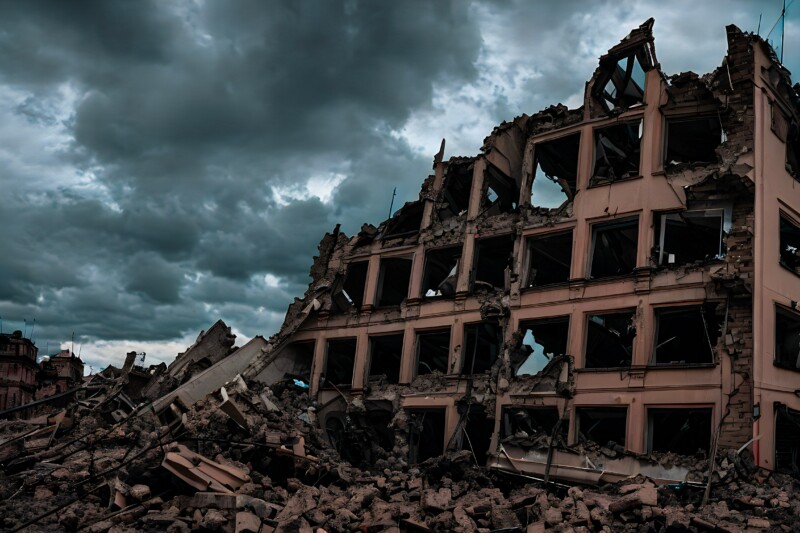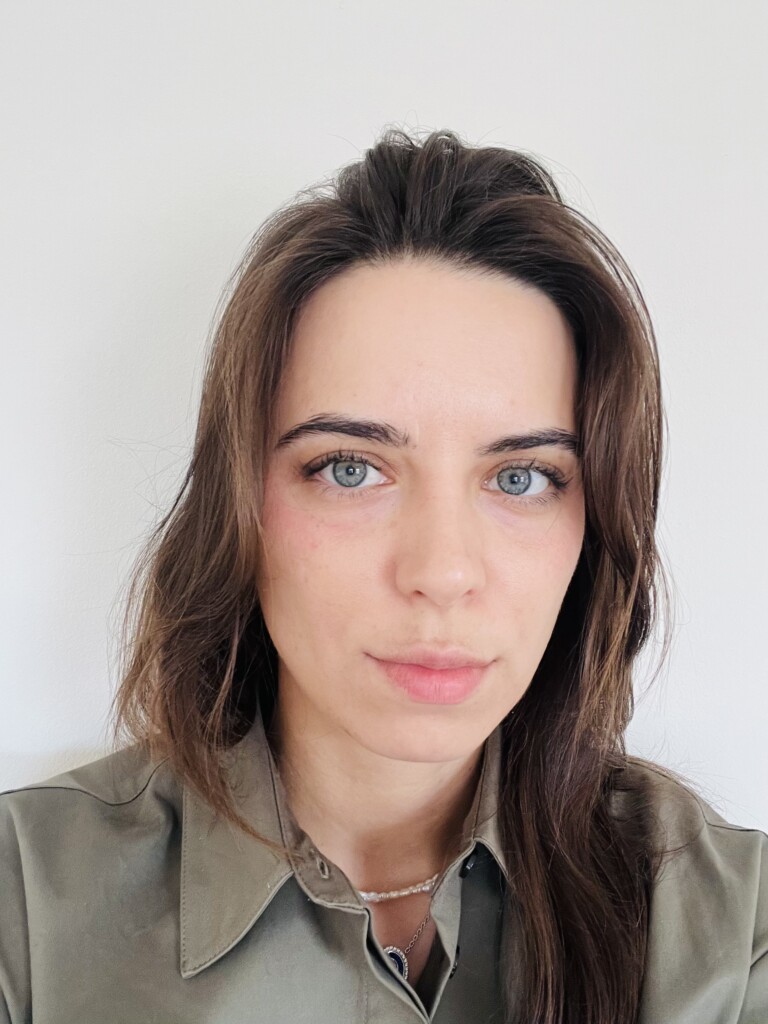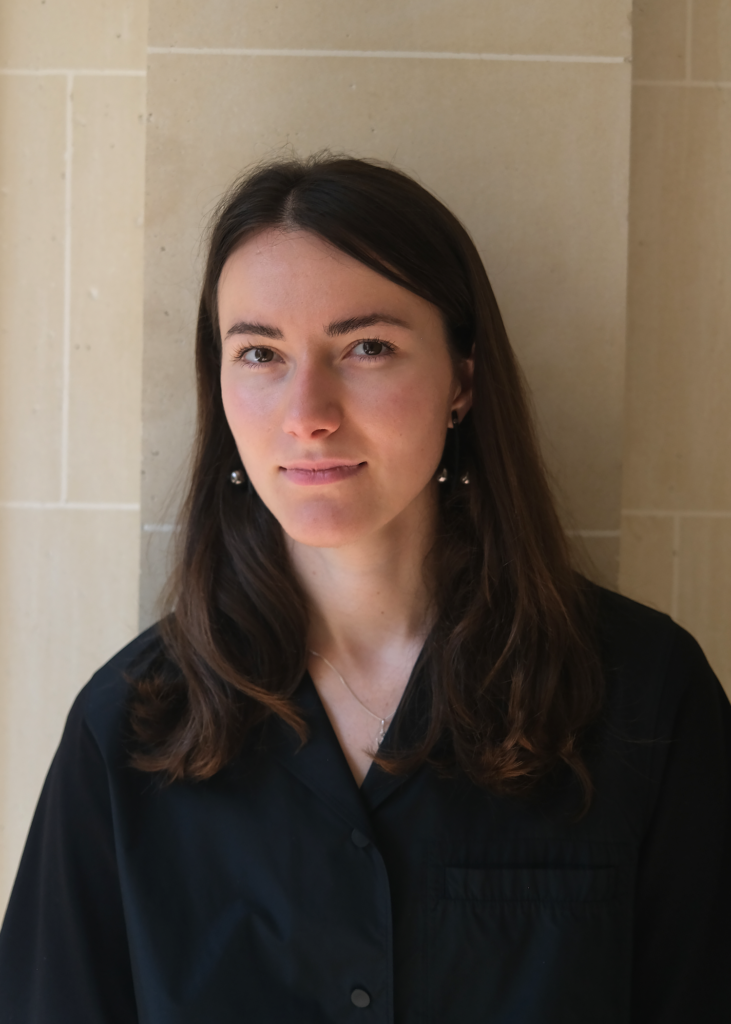How Do We Help Rebuild Cities After War?

Cities are often the first targets of attack in war. The war in Syria and the Russian invasion of Ukraine has seen cities attacked and destroyed. How do we rebuild cities after war?
The post-war rebuilding process looks different in every instance: some cities are rebuilt as they looked before, while others follow entirely different blueprints. But rebuilding a city is about a lot more than simply bricks and mortar. How do we achieve justice following war? What is the role of reparations – and who should pay? Attention also needs to be given to the communities that still live there, as well as those who have been displaced. How do we ensure these people are returned home and these communities are restored?
This panel brings together two architects from Homs, Syria – one still working in Homs, the other in exile – a Ukrainian architect involved with Re: Mariupol and the co-founder of Mriia, an initiative that aims to imagine the future of Ukraine. Together, they will tackle these issues and discuss what we in the UK can do to help affected cities rebuild and recover following conflict or invasion. Ammar Azzouz is a Syrian-British architect and author of Domicide: Architecture, War and the Destruction of Home in Syria, and is joined by Marwa Al-Sabouni, Syrian architect and author of The Battle for Home and Building for Hope: Towards an Architecture of Belonging. Completing the panel are Yana Buchatska, an architect and designer originally from Vinnytsia, and Anna Kamyshan, multidisciplinary curator and artist and co-founder of Mriia.
Buy the books from Bookshop.org:
Ammar Azzouz’s Domicide: Architecture, War and the Destruction of Home in Syria
Marwa Al-Sabouni’s Building for Hope: Towards an Architecture of Belonging

Ammar Azzouz is a Research Fellow at the School of Geography and the Environment, University of Oxford. He is the Principal Investigator of Slow Violence and the City, a research project that examines the impact of violence on the built environment at the time of war and peace. He is also a Research Fellow at Somerville College at the university.

Marwa al-Sabouni is a Syrian architect and author of Building for Hope: Towards an Architecture of Belonging. She is an urban thinker who believes that architects have a duty to stimulate social cohesion. When war enveloped her city, Homs, she refused to leave and remained a virtual prisoner in her home for two years. In her autobiography, The Battle for Home: The Vision of a Young Architect in Syria, al-Sabouni analyses how architecture and city planning have played a role in fuelling violence and civil conflict by distorting community relationships and fragmenting societies.

Anna Kamyshan is a multidisciplinary curator and artist working in the fields of architecture, urbanism, and socio-cultural studies. Following the outbreak of the Russian-Ukrainian war, Anna co-founded Mriia, an initiative that aims to imagine the future of Ukraine in a long-term perspective.

Yana Buchatska is an architect and designer originally from Vinnytsia. Yana works with projects of various scales — from urban to design solutions for exhibitions and furniture.
Pay What You Feel
This event is part of our new ticket pricing structure where we ask people to pay what they feel they can afford in accordance with their means. Read more about it here. Read on for the ticket prices for this event.
One free carer ticket can be booked at the same time for a paying disabled visitor. If you need to book more than one, please contact us before booking to arrange.
Pay It Forward
The Pay It Forward option enables you to book a ticket above the standard price, and will help to subsidise a ticket for someone who requires the Pay What You Can option. This option is aimed at people who are able to meet their basic needs and would like to help somebody else with the cost of their ticket.
- Is this for me? – I have access to a regular and stable income and I have the means and desire to contribute towards making the event affordable for others and supporting Bristol Ideas.
Recommended
This recommended price is based on what we’d traditionally charge for a similar event. It helps us make sure that basic costs are covered. This price is aimed at people who are able to meet their basic needs and have enough to live on.
- Is this for me? – I have access to a regular and disposable income, and I can comfortably afford the recommended ticket price.
Supported
This option is lower than the recommended price. It is subsidised by Bristol Ideas and fellow audience members who have booked at the Pay It Forward rate. This price is aimed at people who could do with support to get by.
- Is this for me? – My access to income is low and unstable and I worry about meeting my basic needs. I would select a concession rate due to my personal circumstances.
No one will be turned away due to lack of funds, so please contact us if you have any queries.
Booking Information
Ticket booking is via Eventbrite. Please review Eventbrite’s terms and conditions and Privacy Policy as Bristol Ideas do not accept any responsibility or liability for the policies. You can read Bristol Ideas’ Privacy policy here.
Please note we only refund tickets if the event is cancelled. Events start punctually and, out of consideration to other audience members and speakers, our policy is not to admit or issue refunds to latecomers. Full Terms and Conditions here.
Accessibility
- Watershed’s main entrance and Box Office are both on the ground floor which is accessible via a ramped, electronically assisted entrance door.
- There are two Blue Badge parking spaces to the rear of Watershed on Canons Road.
- Guide dogs and hearing dogs are very welcome.
- The first floor of Watershed is accessible via lift from the main entrance and includes level access to all areas, including the cinemas and event spaces.
- The cinemas and event spaces have induction loops.
- There is an accessible toilet (with baby changing facilities) near Cinema 1. Follow the signs for the Cinemas and the accessible toilet is just on your left through the double doors before Cinema 1.
- There are gender neutral toilets in the cinema corridor on the first floor.
Visit Watershed’s Access page for more information.